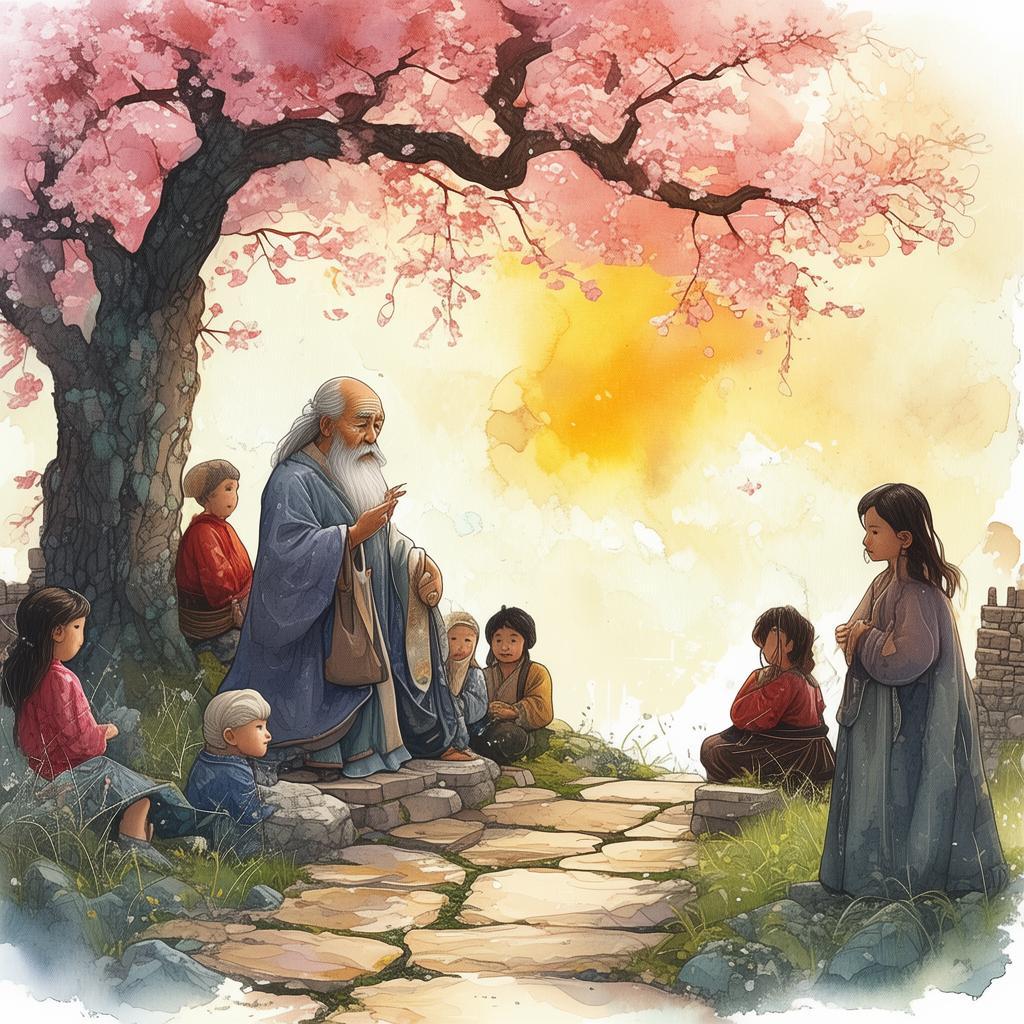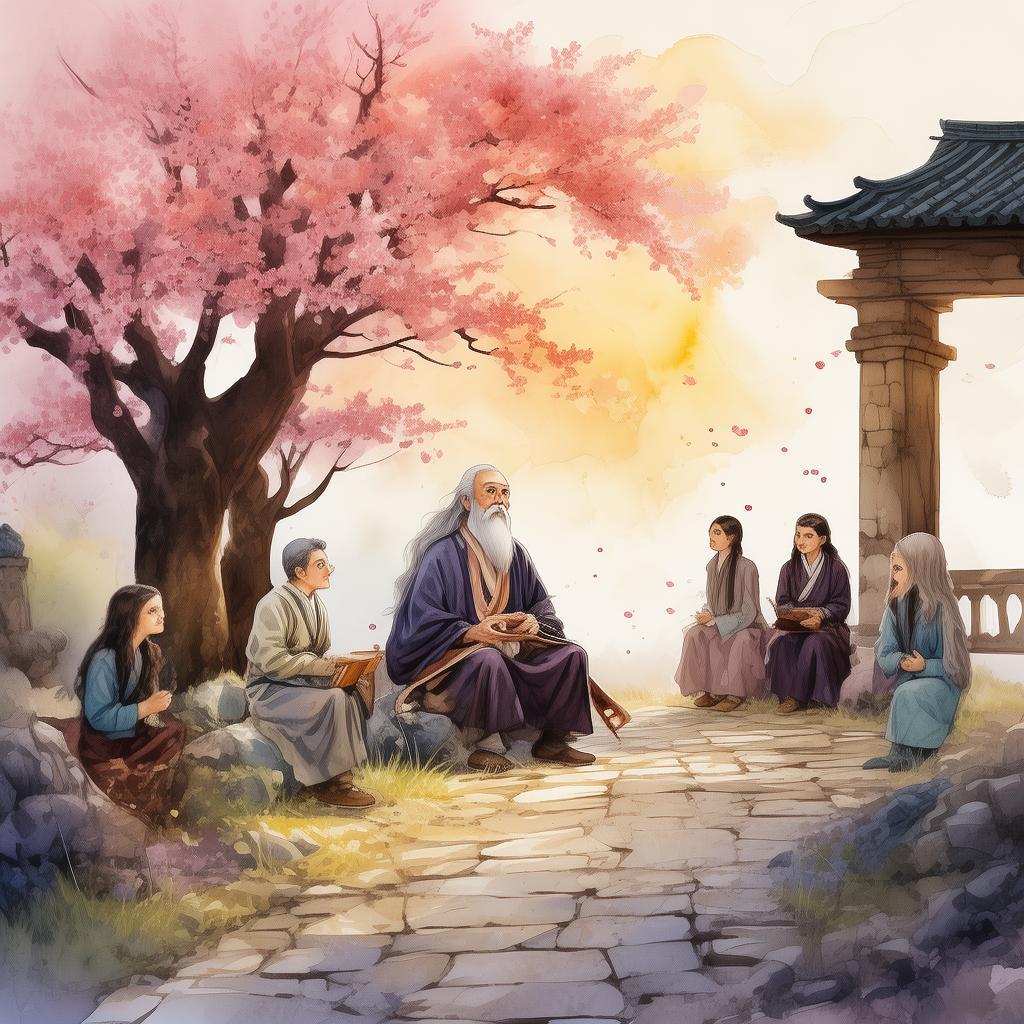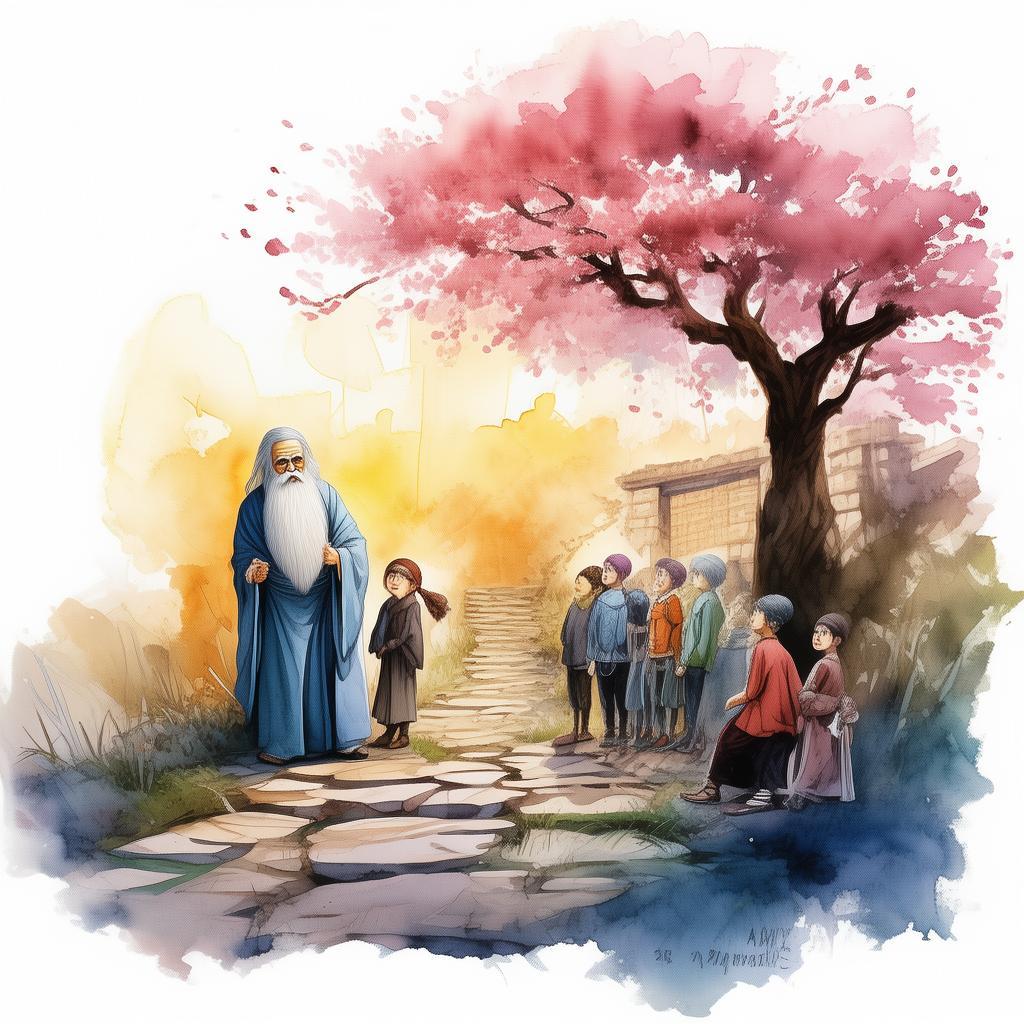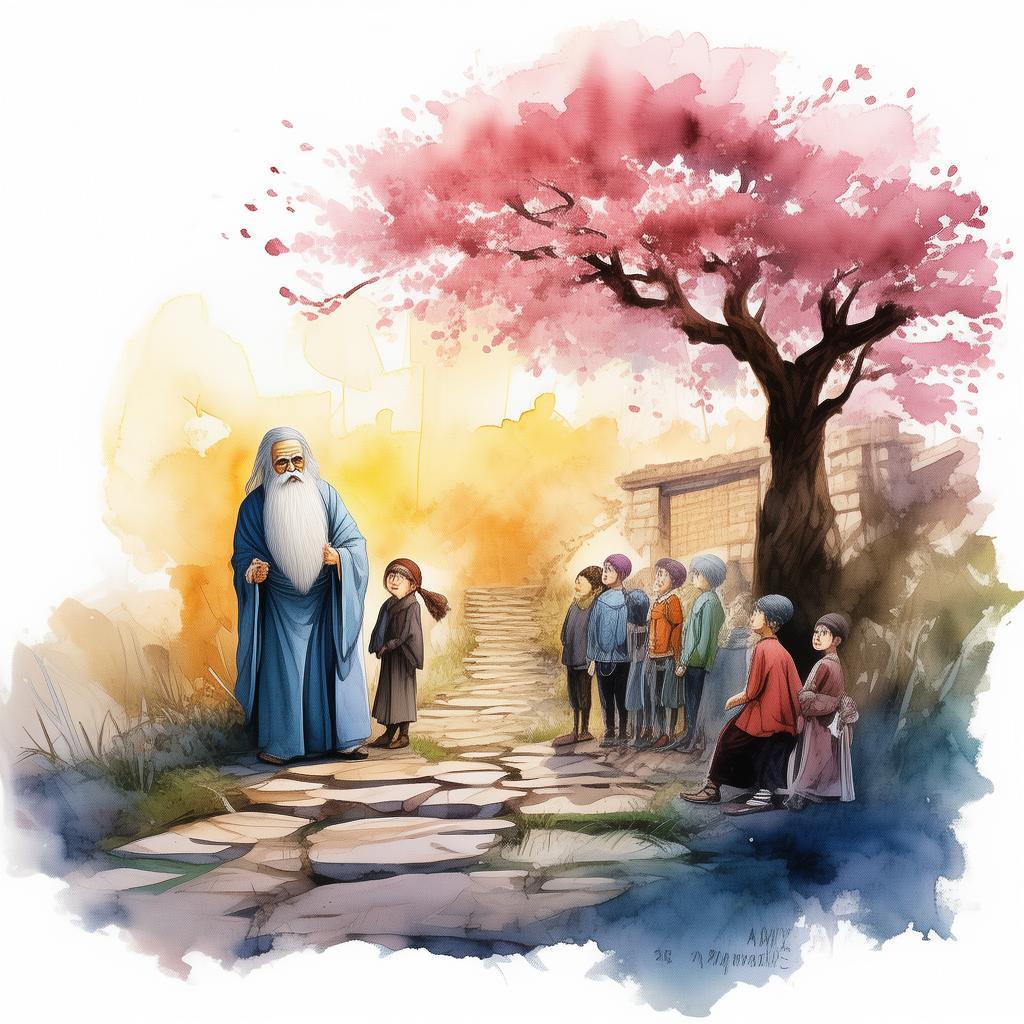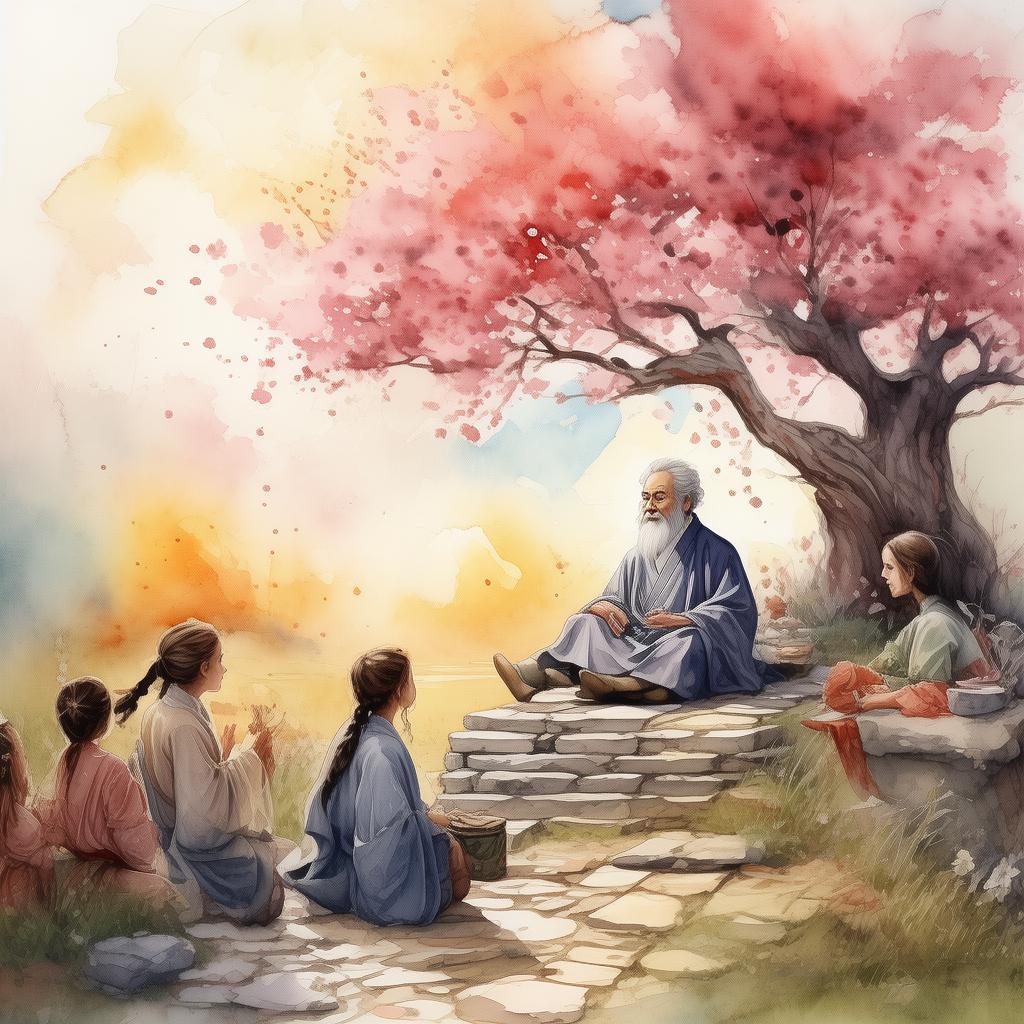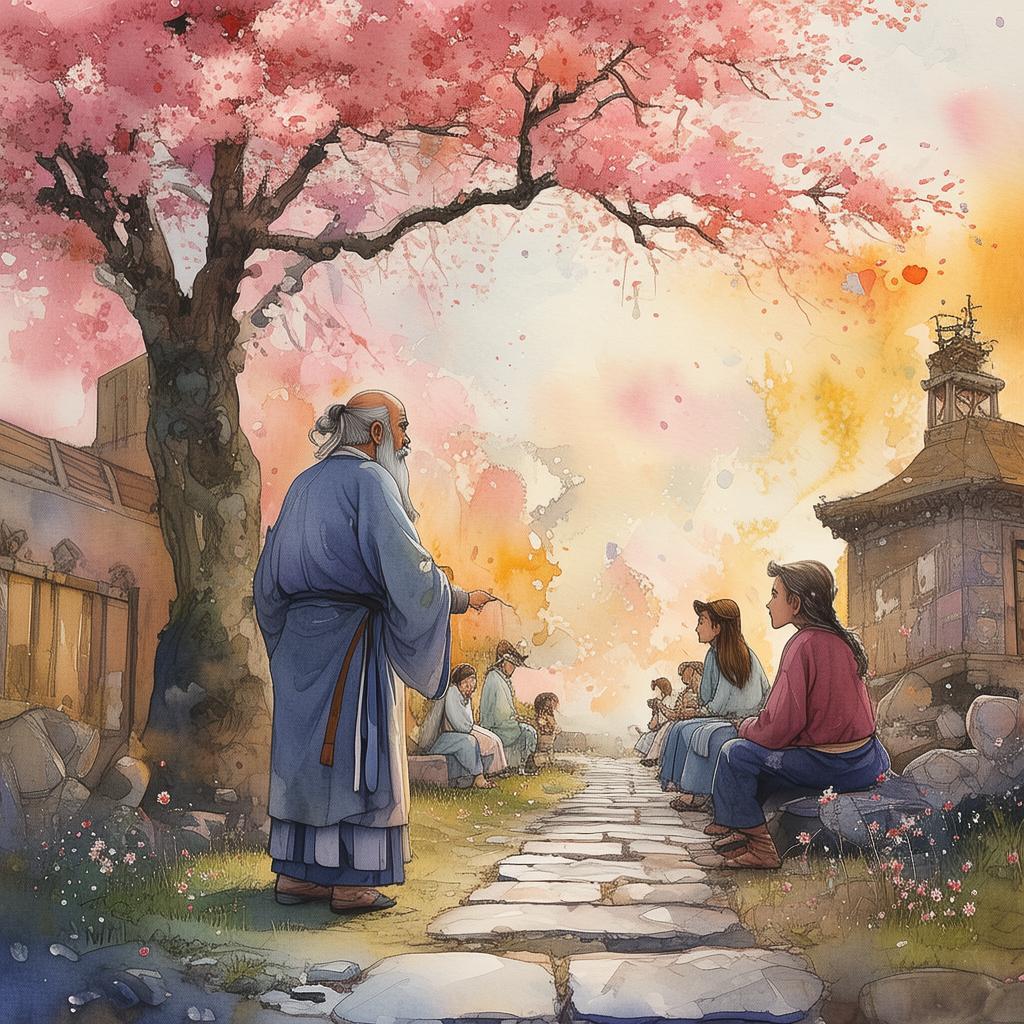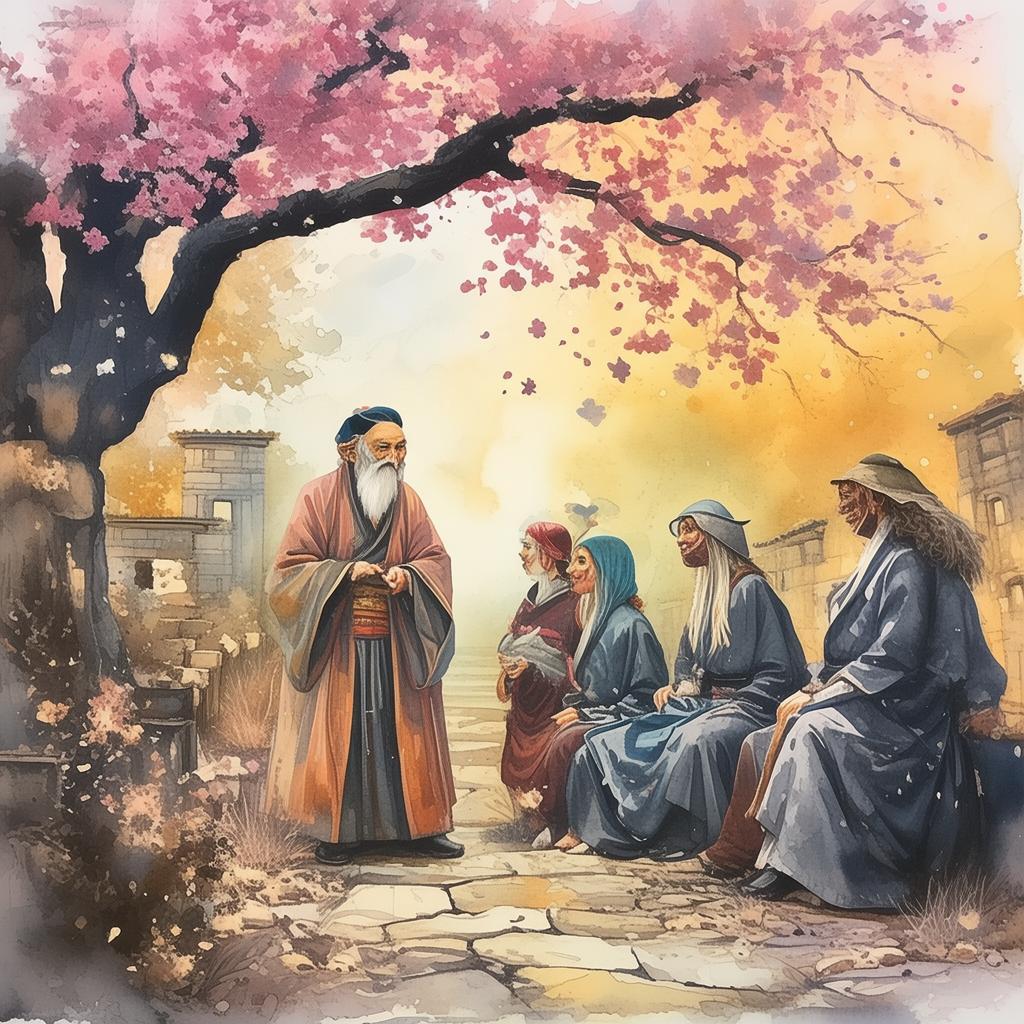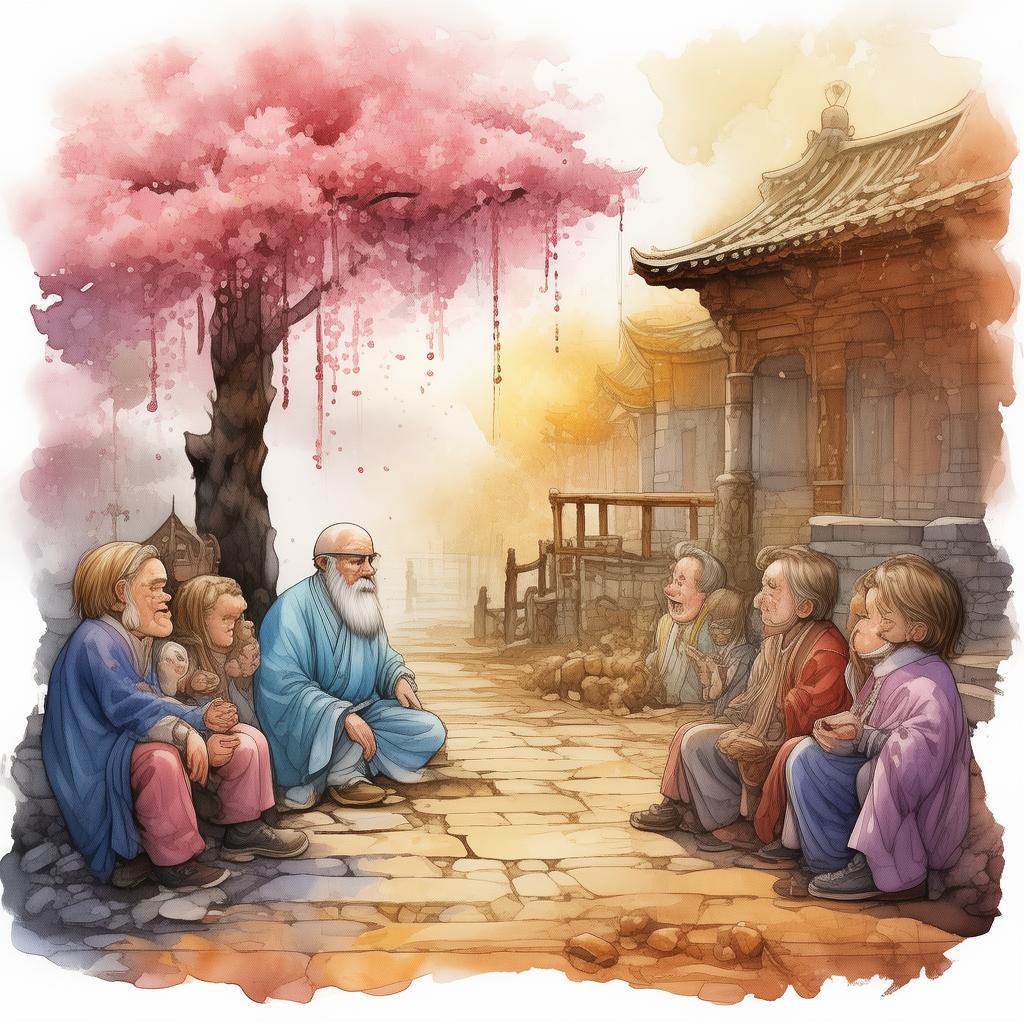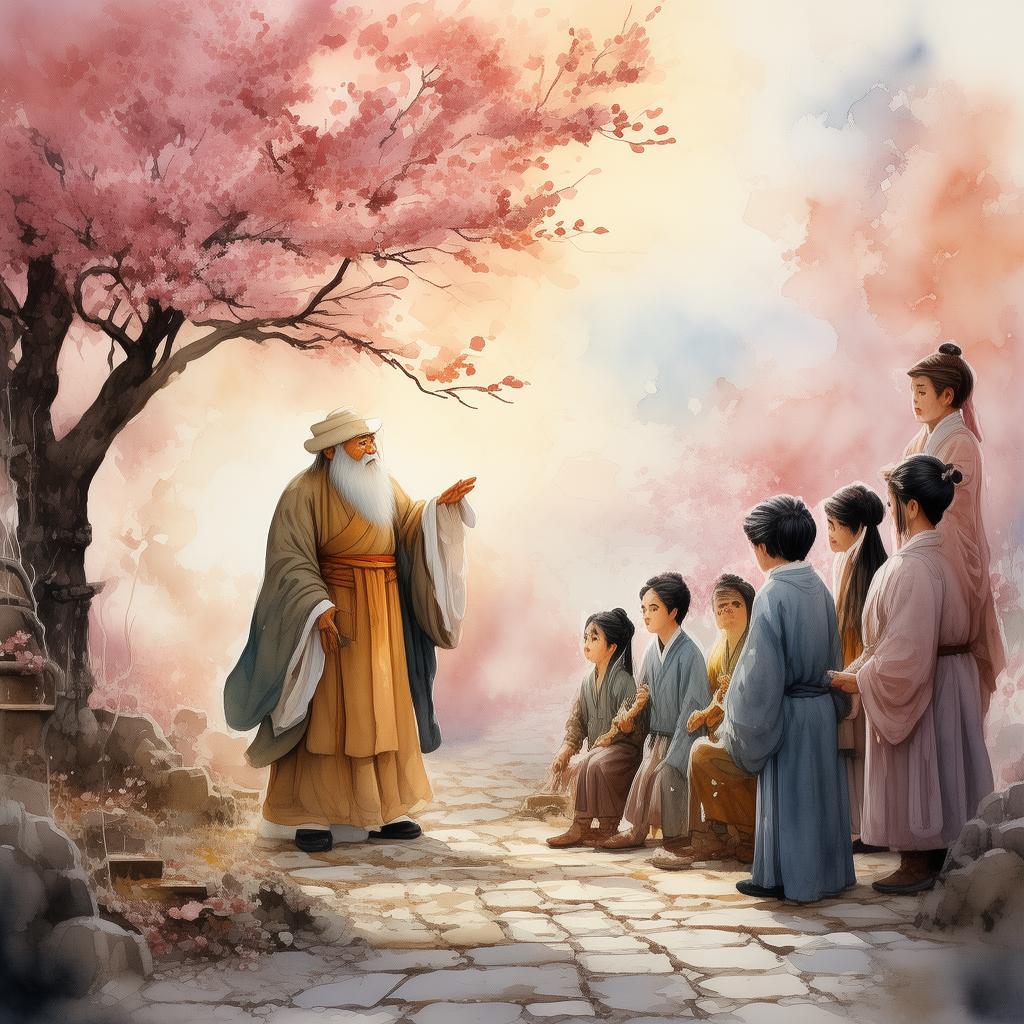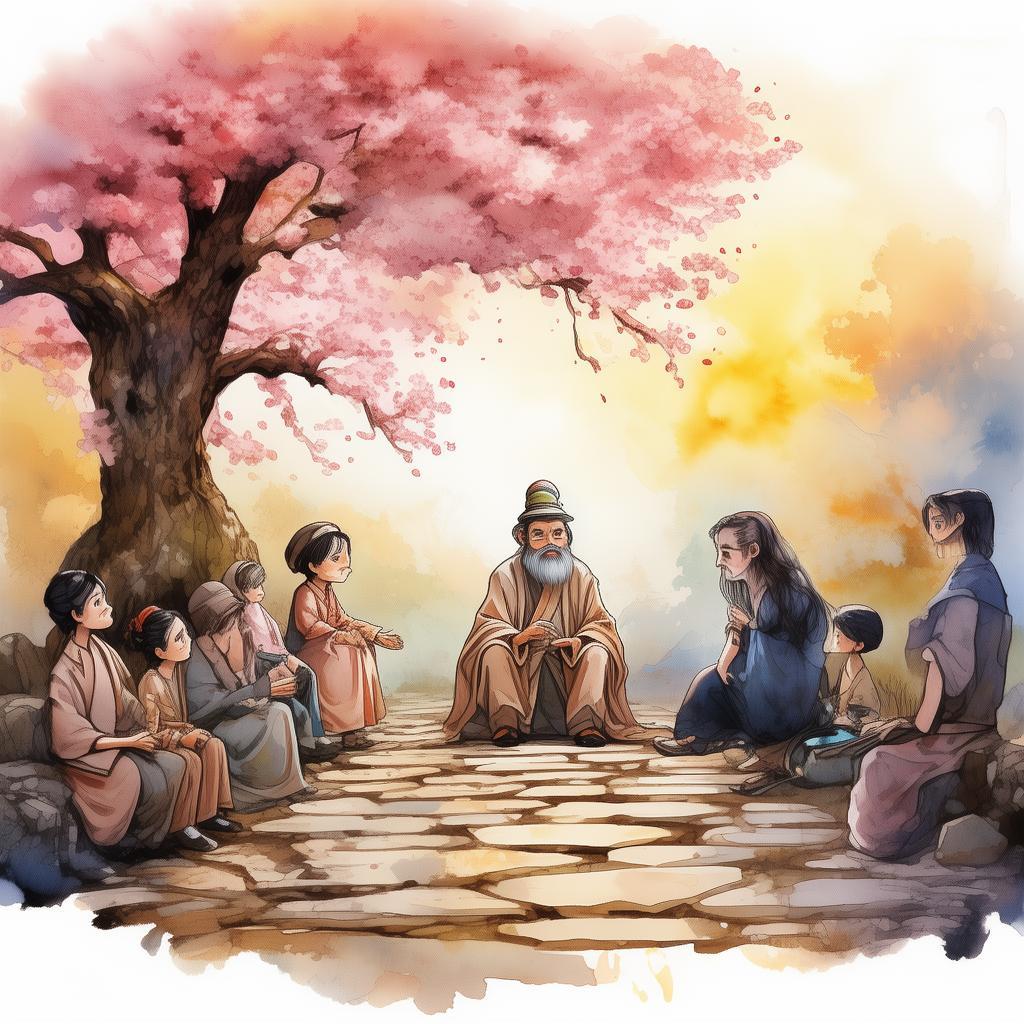Whispers of the Unseen Harmony
In the heart of ancient China, nestled between the rolling hills and the whispering rivers, there lay a small village known for its serene beauty and the wisdom of its inhabitants. The villagers spoke of an unseen harmony that permeated their everyday lives, a harmony that was as much a part of them as the air they breathed. This harmony was not just a concept but a way of life, a dance of the mundane with the extraordinary, a testament to the beauty that lay hidden in the everyday bliss.
Among the villagers was a young scholar named Liang, whose eyes were always searching for the deeper truths of the world. He spent his days immersed in the ancient texts, seeking to unravel the mysteries of life and the universe. Yet, despite his knowledge, he felt a void, a longing for something he could not quite grasp.
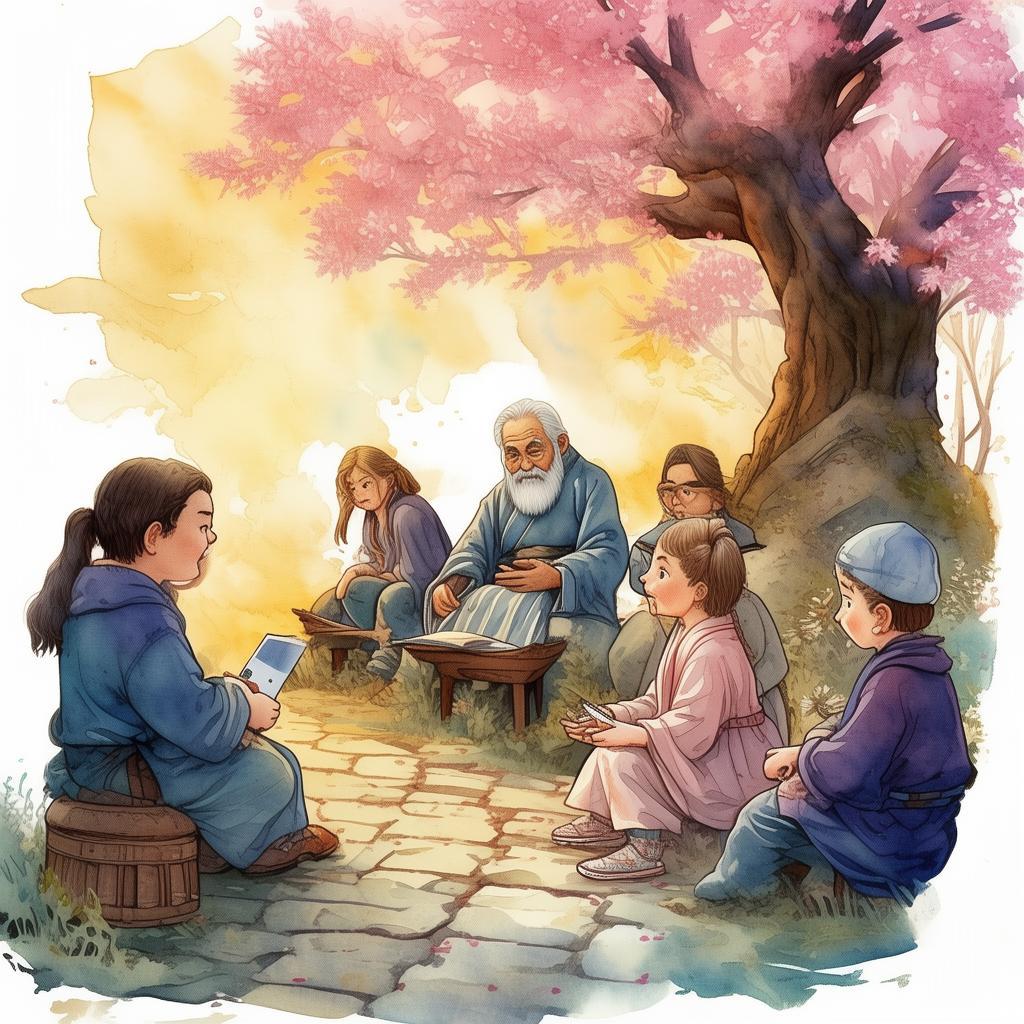
One evening, as the sun dipped below the horizon, casting a golden glow over the village, Liang wandered into the local tea house. The air was filled with the scent of freshly brewed tea and the soft murmur of conversation. The tea master, an elderly man with a twinkle in his eye, noticed Liang's contemplative expression and offered him a cup of tea.
As they sipped in silence, the tea master shared a story that would change Liang's life forever. "In the days of old," he began, "there was a wise man who realized that the greatest harmony was found not in the grandeur of the world, but in the everyday bliss. He discovered a proverb that encapsulated this truth: 'The harmony of the unseen is the essence of life's bliss.'"
Liang's curiosity was piqued. "And what was this proverb?" he asked.
The tea master smiled, "It is a simple phrase, yet profound in its meaning. 'The unseen harmony of the everyday blissful.'"
Liang pondered the words, his mind racing with questions. What did it mean to find bliss in the unseen? How could one live a life of harmony in the midst of everyday chaos?
The next morning, Liang set out on a journey to discover the truth behind the proverb. He traveled through the mountains and across the rivers, meeting people from all walks of life. He listened to their stories, observed their routines, and sought to understand the unseen harmony that bound them together.
He met a farmer who found joy in the simple act of planting seeds and watching them grow. A mother who found bliss in the laughter of her children. A craftsman who took pride in the beauty of his work, even if it was unseen by many.
As Liang journeyed further, he began to understand that the unseen harmony was not just a concept but a way of being. It was about finding joy in the little things, about appreciating the beauty that lay hidden in the everyday.
One day, Liang came upon a young girl who was crying over a broken doll. "Why are you crying?" he asked gently.
"I can't fix it," she replied, her tears streaming down her face.
Liang knelt down and looked into her eyes. "But you can make it whole again in your heart. Sometimes, the unseen harmony is found in the love we have for the things that are broken."
The girl's eyes lit up, and she smiled through her tears. "You're right," she said. "Thank you."
Liang realized that the proverb was not just a saying but a guide to living. It was a reminder that true bliss was not found in the grandeur of the world, but in the everyday moments, in the unseen harmony that connected all living things.
As he returned to the village, Liang shared his discoveries with the villagers. They listened intently, their eyes reflecting the wisdom of the ages. The village was transformed, and the unseen harmony began to manifest in new ways.
Liang's journey had not only changed him but also the entire village. The villagers began to see the beauty in their daily lives, to find joy in the simplest of moments. The harmony that had been so elusive before now seemed to be a part of their very essence.
And so, the village thrived, a testament to the power of the unseen harmony of the everyday blissful. Liang, now an elder among his people, shared his wisdom with future generations, ensuring that the proverb would never be forgotten.
The story of Liang and the unseen harmony spread far and wide, becoming a beacon of hope and inspiration. It taught that true bliss was not a distant goal but a reality that could be found in the everyday moments, in the unseen harmony that bound us all together.
✨ Original Statement ✨
All articles published on this website (including but not limited to text, images, videos, and other content) are original or authorized for reposting and are protected by relevant laws. Without the explicit written permission of this website, no individual or organization may copy, modify, repost, or use the content for commercial purposes.
If you need to quote or cooperate, please contact this site for authorization. We reserve the right to pursue legal responsibility for any unauthorized use.
Hereby declared.
